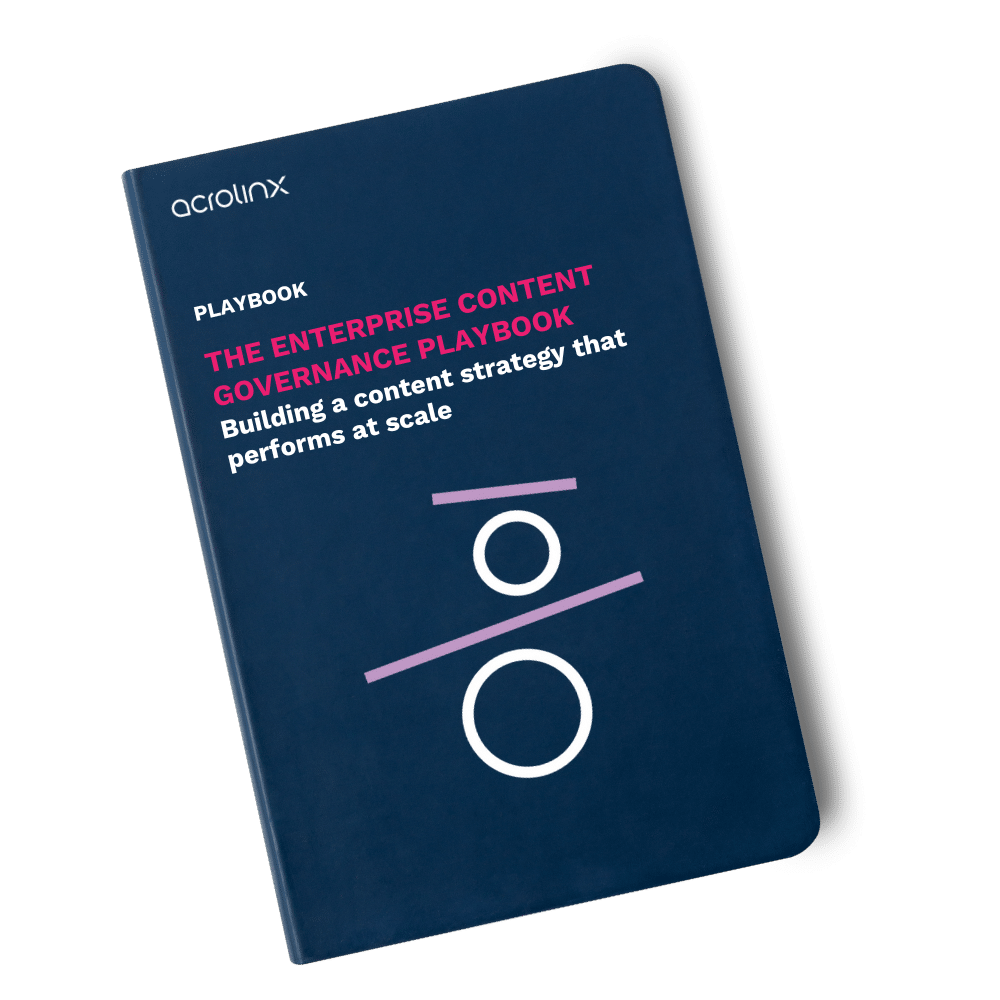The Role of AI in Personalising Customer Communications

AI personalisation is redefining how businesses interact with their customers. By analysing user data, companies can deliver personalised content tailored to individual preferences, enhancing customer satisfaction, and improving overall customer experience.
With 44% of UK shoppers stating that personalised offers are the most influential content when it comes to making a purchase, AI personalisation is already an effective tool for promoting business growth.
But while AI-powered personalisation presents an opportunity to increase customer engagement, businesses must ensure that automation aligns with their brand voice, meets compliance requirements, and respects data privacy concerns.
This article explores how businesses can use AI technology to enhance customer communication, the challenges of AI-driven personalisation, and how to maintain human oversight in an AI-powered world.
AI Personalisation and the evolution of customer communication
AI personalisation is the process of leveraging machine learning capabilities to tailor content, marketing messages, and interactions to individual users. Unlike traditional segmentation, which groups customers into broad categories, AI adapts dynamically, making decisions in real-time based on historical data, user behaviours, and customer touchpoints.
For example, AI-powered algorithms can assess a customer’s purchase history to provide personalised recommendations, ensuring that they receive relevant content across mobile apps, websites, and social media interactions. Similarly, generative AI can craft tailored experiences for specific users, adjusting email campaigns, dynamic website content, and product suggestions.
Industries leveraging AI personalisation
- Ecommerce and retail have significantly benefited from AI-powered personalisation. Companies now offer dynamic pricing and personalised product recommendations based on browsing and shopping habits. AI-driven chatbots and automated customer touchpoints provide seamless support, while personalised content in marketing campaigns, email promotions, and social media posts enhances engagement.
- Financial services are using AI algorithms to detect fraudulent activities and improve security. AI-powered chatbots offer personalised interactions in banking, assisting customers with account queries, financial planning, and investment advice.
- Healthcare is implementing AI-driven personalisation to provide patients with tailored health insights based on their historical data. Predictive analytics help anticipate patient needs, while AI tools personalise treatment recommendations and appointment scheduling.
- Media and entertainment platforms such as Netflix and Spotify leverage AI-powered personalisation to recommend content based on viewing or listening habits. The ability to customise experiences through machine learning algorithms keeps users engaged and increases retention.
- Travel and hospitality businesses use AI to provide personalised recommendations for hotels, flights, and itineraries. AI-driven assistants improve customer journeys by offering tailored travel updates and suggestions.
- Marketing and advertising rely on AI to optimise marketing messages, refine ad targeting, and predict the most effective communication strategies. AI also enhances social media interactions, making marketing efforts more effective and targeted.
By leveraging AI-powered personalisation, businesses across these industries are increasing customer engagement, improving conversion rates, and optimising their marketing strategy.
How AI personalisation works
The personalisation process involves several key components that enable AI to refine customer interactions. Businesses start by collecting data points, including browsing habits, previous purchases, and user queries. Through machine learning algorithms, AI processes this information to detect patterns and predict consumer behaviour.
With a deep understanding of a specific customer, AI delivers hyper-personalisation, making sure that customers receive the right message at the right time. In ecommerce businesses, this means offering dynamic pricing based on real-time data, while in email marketing, AI might personalise subject lines and content to match individual preferences.
The results from a marketing perspective? Higher user engagement, increased conversion rates, and improved customer satisfaction.
Challenges of AI-driven personalisation
Despite its potential, AI-powered personalisation comes with challenges. One major concern is safeguarding AI-generated personalised interactions to remain ethical and transparent. Customers are becoming more conscious of how their customer data is used, making data privacy a key consideration.
Another challenge is avoiding AI bias. Since AI algorithms rely on historical data, there’s always a risk of reinforcing outdated trends rather than creating tailored experiences that reflect evolving customer journeys. Businesses must continuously refine their AI systems to prevent inaccurate recommendations.
Additionally, while AI tools automate communication, they sometimes lack the emotional intelligence necessary for customer engagement. Artificial intelligence can optimise responses, but without human oversight, personalised content feels robotic rather than intuitive.
Balancing AI and human oversight in personalisation
To ensure AI-powered solutions remain effective, businesses should focus on integrating AI-driven personalisation with human quality control. AI can efficiently gain insights into customer behaviour, but human teams should refine and oversee content generation to safeguard accuracy, compliance, and tone consistency.
For example, marketing campaigns that use AI to create personalised content should still involve editorial teams to verify whether AI-generated material aligns with business goals. Similarly, AI-generated ad targeting should be reviewed to ensure ethical advertising practices.
By combining content automation with human expertise, companies can easily integrate AI while maintaining control over brand messaging.
How to use AI personalisation to improve customer engagement
The most successful businesses leverage AI personalisation not only to increase customer engagement, but also to improve customer satisfaction. Here’s how companies can use AI to deliver relevant experiences across ecommerce platforms, social media posts, and beyond:
- Real-time personalisation: AI adapts dynamic yield in real-time data, making sure customers receive content that resonates with their immediate needs.
- Tailored content: AI generates personalised recommendations based on user behaviours, creating seamless, relevant recommendations that drive engagement.
- Automated responses: AI-powered personalised responses can handle basic queries, while complex concerns are escalated to human support teams.
- Cross-channel consistency: AI ensures personalised interactions across multiple platforms, from chatbots to emails, social media posts, and mobile apps.
With these strategies, businesses can use AI-powered personalisation to improve the entire customer experience without losing sight of their marketing strategy.
How Acrolinx helps businesses achieve AI-powered personalisation without losing control
Acrolinx ensures that businesses using AI-driven personalisation maintain quality, compliance, and brand consistency. By leveraging AI algorithms for data analysis, Acrolinx helps brands refine their marketing efforts, making sure that AI-generated content aligns with brand voice guidelines.
Companies looking to maximise the benefits of AI-powered personalisation should focus on:
- Leveraging real-time data to create relevant content that adapts to consumer behaviour.
- Using AI-driven insights to optimise marketing budget allocation and content creation.
- Ensuring AI-generated content meets compliance standards, reducing legal risks.
- Using AI in content generation to save time while maintaining high-quality outputs.
Through natural language processing, Acrolinx evaluates AI-generated personalised content, preventing inconsistencies and ensuring that AI messaging meets industry standards. Whether companies are personalising email marketing, refining customer journeys, or optimising content personalisation, Acrolinx provides valuable information to keep AI-driven communication on track.By integrating AI-powered personalisation with human expertise, businesses ensure that personalised content is accurate, ethical, and effective.
With Acrolinx, brands confidently adopt AI personalisation without compromising control, compliance, or customer experience. Learn more about how to collaborate with AI in our eBook.
Are you ready to create more content faster?
Schedule a demo to see how content governance and AI guardrails will drastically improve content quality, compliance, and efficiency.
The Acrolinx Team






